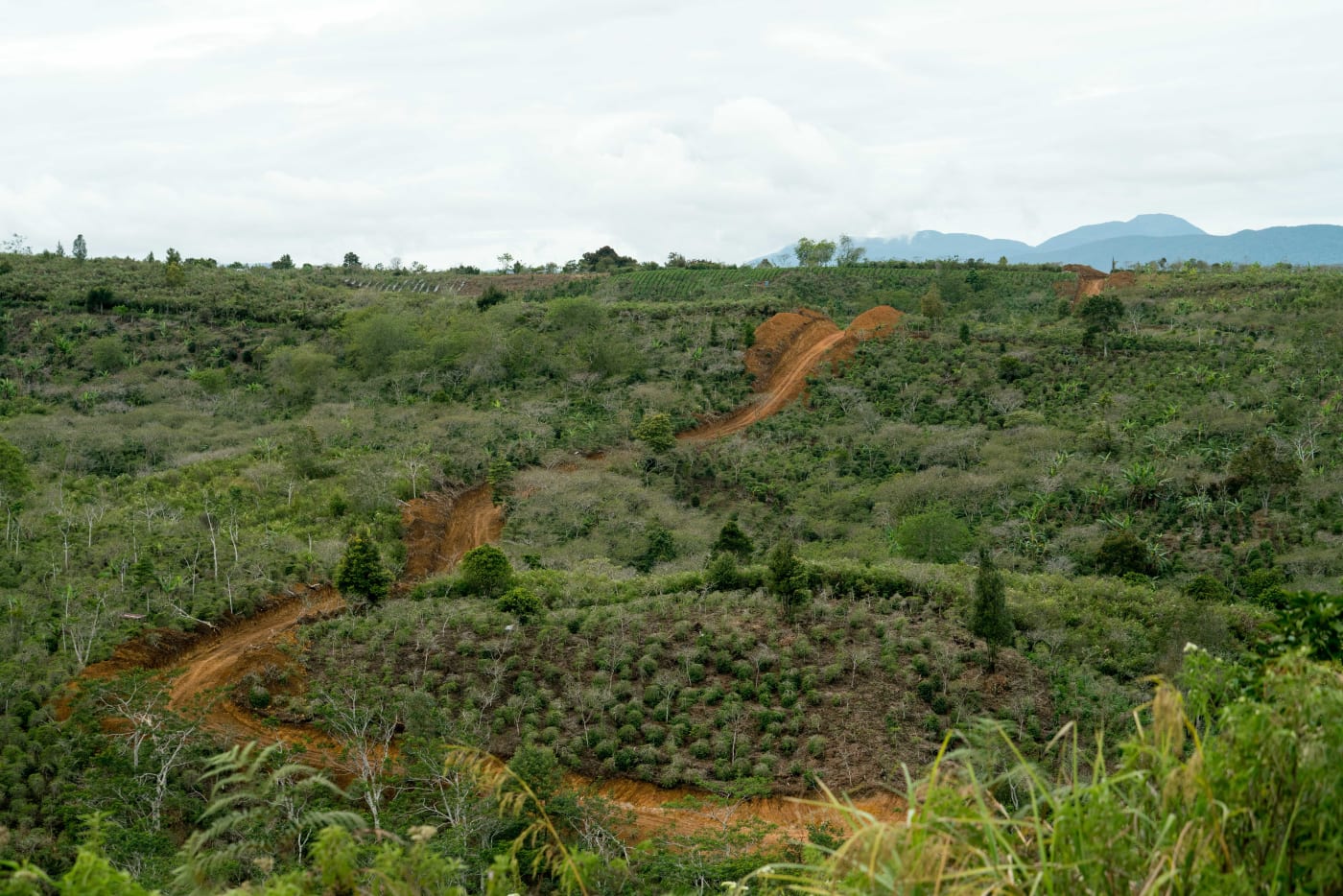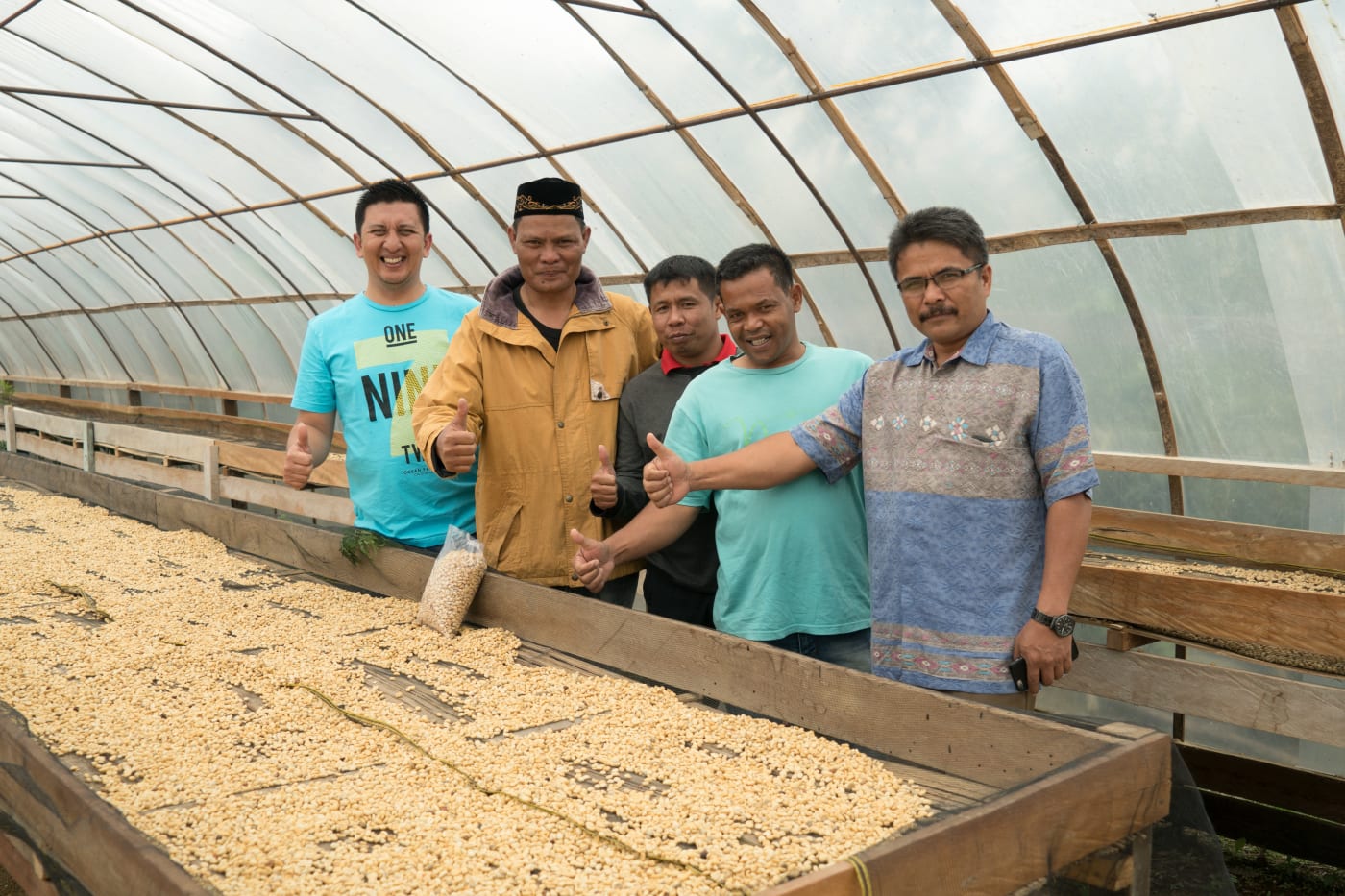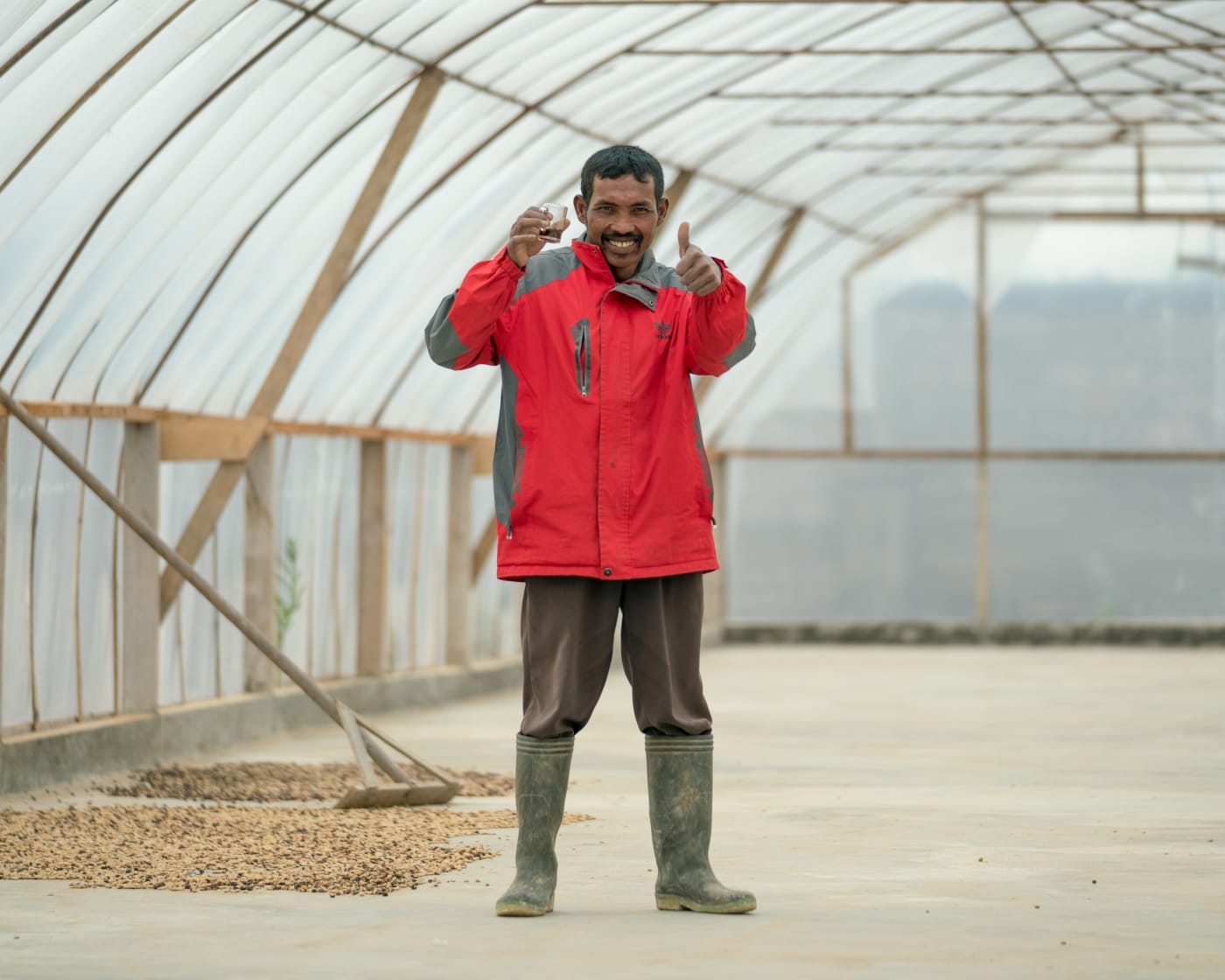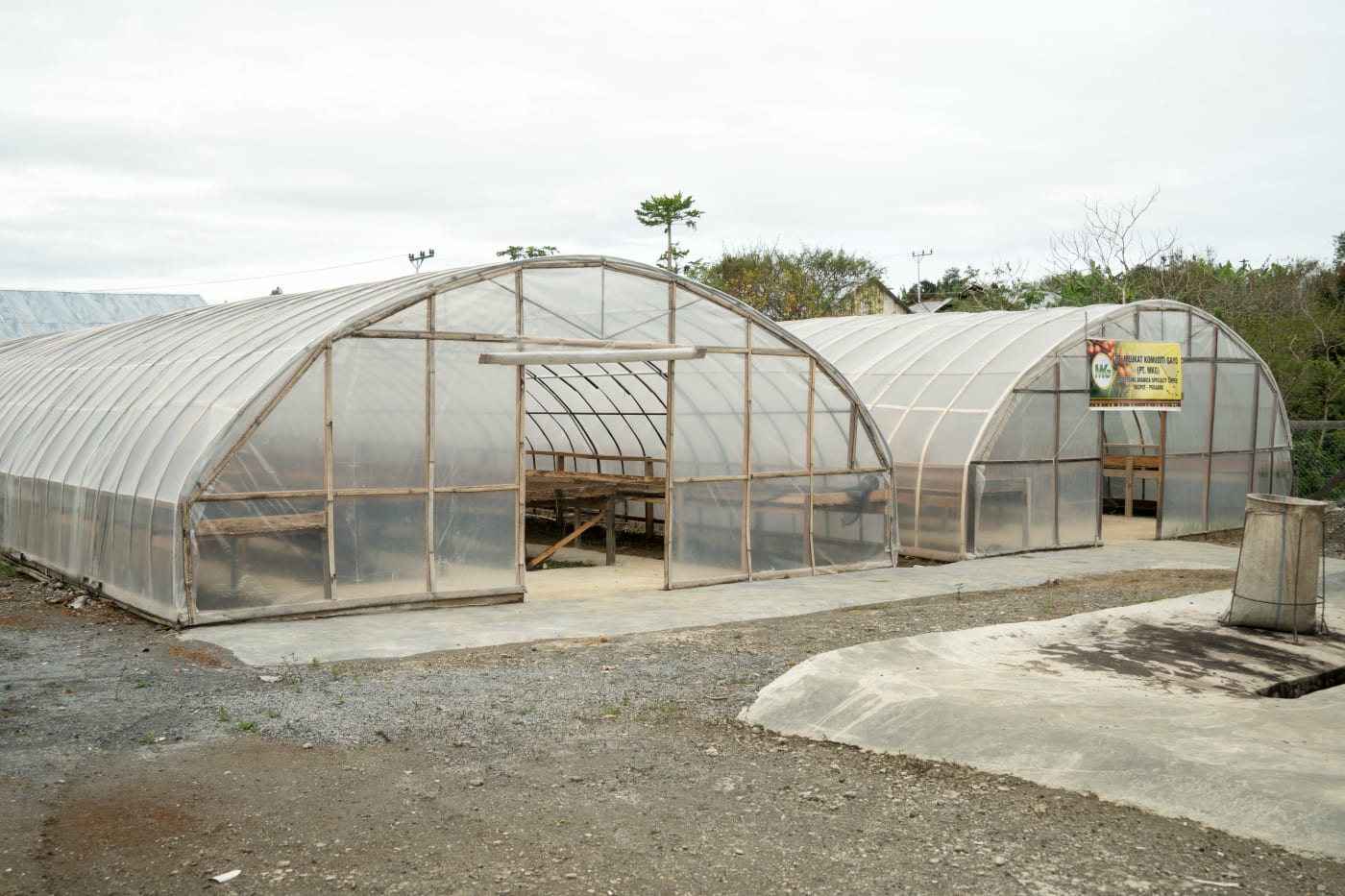Well, this is quite something. It’s our first Indonesian coffee!
The Asman Gayo mill is located in the Pegasing district of Takengon, in the Aceh region north of the Sumatra island. This area is an incredible region for coffee production. Its geography is very diverse; it is surrounded by beaches, and the Barisan Mountains comprise the inner two-thirds of the area. The rest is quite swampy, featuring Lake Taboa (the largest volcanic lake in the world). Coffee cherries grow in the volcanic soils of those medium-height mountains amongst the rainforest.

The Asman Gayo mill serves several small producers within the Pantan Musara villages who relocated there after a natural disaster in their hometown area and rebuilt their lives and farms with a new focus on coffee. Unlike most other Sumatran coffee receiving and processing centres, this mill produces washed and natural process coffees.

General info about Sumatran coffee
Before the 1970s, coffees in Sumatra were processed in the two most commonly found methods worldwide: washed and natural. In the 1970s, Japanese interest in Sumatran coffees led to the introduction of the ‘wet-hulled’ process (locally known as Giling Basah), a unique style of handling and drying. This process, together with the influence of the island’s climate and the features of the varietals, is largely responsible for Sumatran coffees’ unmistakable characteristics: earthy, savoury, somewhat vegetal or herbaceous flavours and a greenish-blue hue.
In Sumatra, coffee farmers will typically harvest their coffee cherries and depulp them by hand at their farm or home. The coffee then dries for a very short time and is brought either to a coffee marketplace or to a ‘collector’ or collection point, where the beans are purchased at anywhere from 30–50% moisture, with their mucilage still partially intact. The coffee is then combined and hulled (has its parchment removed) while it is still in this high-moisture state. The coffee is then dried to the more commonly globally accepted 11–13% moisture to prepare for export.
While there is some experimentation currently being done with large-scale washed coffee for export, most of it is for local consumption. The wet-hulled process was developed specifically to speed up drying and efficiency in a climate that sees heavy rain and clouds most of the year. Removing the parchment layer allows the coffee to dry much faster on patios or tarps even in these conditions.
Microlots from Sumatra are most commonly traceable to the mill level but occasionally traceable to the producer. Because of the generally small size of farms in Sumatra, most producers’ coffee is blended with that of other smallholders.

Due to the humid climate and cloud cover commonly found over the island of Sumatra, washed coffees are rarely produced. When they are, however, they are typically delivered to a central processing unit or mill in their cherry form, where they will be depulped and fermented in open-air tanks for up to 36 hours before being washed clean. Drying may occur on raised beds, parabolic or solar dryers, or tarpaulins.
Although this offering is not traceable to specific varieties, it is likely comprised of the most common varieties grown in Sumatra: Ateng, Bor Bor, Catimor, and Timor hybrids.







